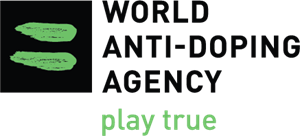Menu

The World Anti-Doping Agency (WADA) was established in 1999 as an international independent agency composed and funded equally by the sport movement and governments of the world. Its key activities include scientific research, education, development of anti-doping capacities, and monitoring of the World Anti-Doping Code (Code) – the document harmonizing anti-doping policies in all sports and all countries.
After the events that shook the world of cycling in the summer of 1998, the International Olympic Committee (IOC) decided to convene a World Conference on Doping, bringing together all parties involved in the fight against doping.
The First World Conference on Doping in Sport held, in Lausanne, Switzerland, on February 2-4, 1999, produced the Lausanne Declaration on Doping in Sport. This document provided for the creation of an independent international anti-doping agency to be operational for the Games of the XXVII Olympiad in Sydney in 2000.
Pursuant to the terms of the Lausanne Declaration, the World Anti-Doping Agency (WADA) was established on November 10, 1999, in Lausanne to promote and coordinate the fight against doping in sport internationally. WADA was set up as a foundation under the initiative of the IOC with the support and participation of intergovernmental organizations, governments, public authorities, and other public and private bodies fighting doping in sport.
The Agency consists of equal representatives from the Olympic Movement and public authorities.